By: Pattie Laird, ICISF Member
The CISM (Critical Incident Stress Management) became very valuable to me after I had taken a few classes & could see how I benefited from CISM by relating my past firefighting experiences. But I have also learned that CISM can be helpful with more than just First Responders. Recently I retired and moved with my husband to Tennessee. In our community we have a group that is called ReHab 23. We are called out to bring food, shelter, and respite care for the police & fire departments in our community. There are a few retired firefighters & retired police officers that are on this team.
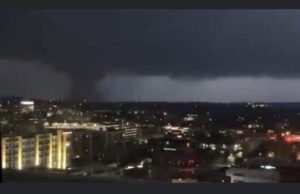 We recently had a tornado touch down in our little town of Mt. Juliet, TN. on March 3, 2020 @ 12:35am. Our alarms on our phones went off and we responded to a devastation of the likes of which I have never seen! We pulled up in our unit and it was pitch black and telephone poles were down with live wires everywhere. People were coming out into the streets from beneath total destruction. I was walking people out to the waiting ambulances & to pickup trucks waiting to transport people to nearby hospitals.
We recently had a tornado touch down in our little town of Mt. Juliet, TN. on March 3, 2020 @ 12:35am. Our alarms on our phones went off and we responded to a devastation of the likes of which I have never seen! We pulled up in our unit and it was pitch black and telephone poles were down with live wires everywhere. People were coming out into the streets from beneath total destruction. I was walking people out to the waiting ambulances & to pickup trucks waiting to transport people to nearby hospitals.
A Command Center was set up & we all went to work helping the police & fire departments get them whatever they needed to complete the mission.
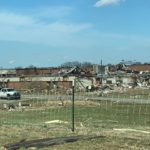 |
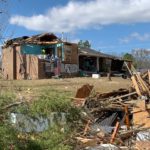 |
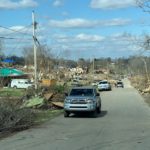 |
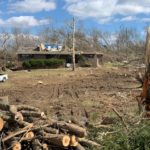 |
|---|
Thirteen days later, on March 16, 2020 we were finally in a position to dismantle the Command Center and do a debriefing. My husband and I were invited to the debriefing because of our training in CISM. We did not lead the debriefing. We observed many of the traits of First Responders behavior stemming from Critical Incident Stress. Some were very despondent, some were angry, some withdrawn & some just very quiet. I sat next to a young girl who was a dispatcher at the time of the incident. As I sat there I saw her pick away & strip at a Dixie cup she was holding.
At the end of the debriefing we were asked to bow our heads to pray. I held the young girl’s hand as we prayed and afterwards she really thanked me & then we talked about her experience. I just let her talk and let her know that I was here if she needed to talk some more.
That same debriefing I was talking to a woman police officer whose home was destroyed in the tornado. I asked her how she was doing. She opened up to me & told me what happened & how she & her husband are both police officers & how she got her children taken care of & then went searching for others to help. She just starting talking & talking & getting a lot of her anxiety out. I just listened & encouraged her to talk. When we finished she said “you get it!!” I said yes, I have been there. We hugged & laughed, I gave her my information & told her to call if she ever needed anything.
These are just two examples of how my CISM training has helped me help my fellow First Responders.